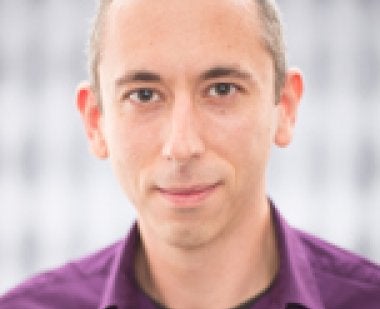
COLLEGE PARK, MD (May, 2016) In early March, Dr. Drew Fagan of the Language, Literacy, and Social Inquiry program was the plenary speaker at the Applied Linguistics Winter Conference, hosted by the New York State Teachers of English to Speakers of Other Languages (TESOL). Over three hundred scholars from around the world attended the conference.
Dr. Fagan’s address, entitled “Affordances of Interdisciplinary Investigations into Teacher Practices and their Effects on the Language Learning Process,” stemmed from a relatively new area of research within the field of applied linguistics, teacher research engagement, which has shown that language teachers struggle to reconcile the knowledge about scholarly research they acquire in teacher education programs with their real-life teaching practices.
The field of applied linguistics contains a number of sub-disciplines, each of which examines how teachers’ discursive practices affect the second/foreign language (L2) learning process from a different angle – Dr. Fagan refers to them as “pieces of a teaching puzzle.” When these puzzle pieces are presented in language teacher education programs, teachers can struggle either to see how the pieces are meant to fit together or to recognize that an individual piece does not make up the whole puzzle. The narrow focus of research in each sub-discipline can present these teachers, moreover, with obstacles in connecting their findings and pedagogical implications with the larger picture of teaching.
For example, the sub-discipline of second language acquisition examines the effects of teachers’ corrective feedback on learners’ abilities to notice specific errors and try to correct them in the moment. Based on quasi-experimental studies, second language acquisition scholars find that certain types of corrective feedback, when used with certain linguistic pattern errors, enable individual learners to notice their errors more easily and attempt modification. While this is important for L2 learning specifically, it does not account for other factors teachers contend with in real-life teaching, such as a particular learner's needs and learning style, the nature of the activity in which the interactions occur, accounting for other learners in the classroom, or getting through the lesson in a timely manner. So while a feedback type may work in controlled conditions, language teachers may find they are unsure how to implement it in a real-life classroom setting.
In his talk, Dr. Fagan dissected what each “puzzle piece” represented in terms of the whole puzzle by showing classroom data and analyzing it from different sub-disciplines’ perspectives. Then he showed how the different pieces fit by bringing the different data analyses and findings together and revealing their implications for practicing teachers and teacher educators. In sum, Dr. Fagan sought to map out an interdisciplinary paradigm that produces a more holistic picture of how applied linguistics research connects to real-life instructional contexts.
Dr. Drew S. Fagan is an assistant clinical professor in the Department of Teaching and Learning, Policy and Leadership, where he is the TESOL Outreach/International Coordinator. His research focuses on factors affecting language teacher talk and its subsequent effect on language learning opportunities in classroom interactions. Over the past two decades, Dr. Fagan has worked as an English as a Second Language (ESL) and English as a Foreign Language (EFL) teacher and teacher educator in K-12, higher education, and adult education settings across the United States, Japan, China, Spain, and Mexico. In 2005-2006, he was the first EFL Fulbright Fellow to the Slovak Republic. He holds an Ed.D. from Teachers College of Columbia University.
Click here to learn more about Dr. Fagan’s work.
-end-
For more information on the College of Education, visit: www.education.umd.edu
or contact
Audrey Hill, Associate Director of Communications, at: audreyh@umd.edu



